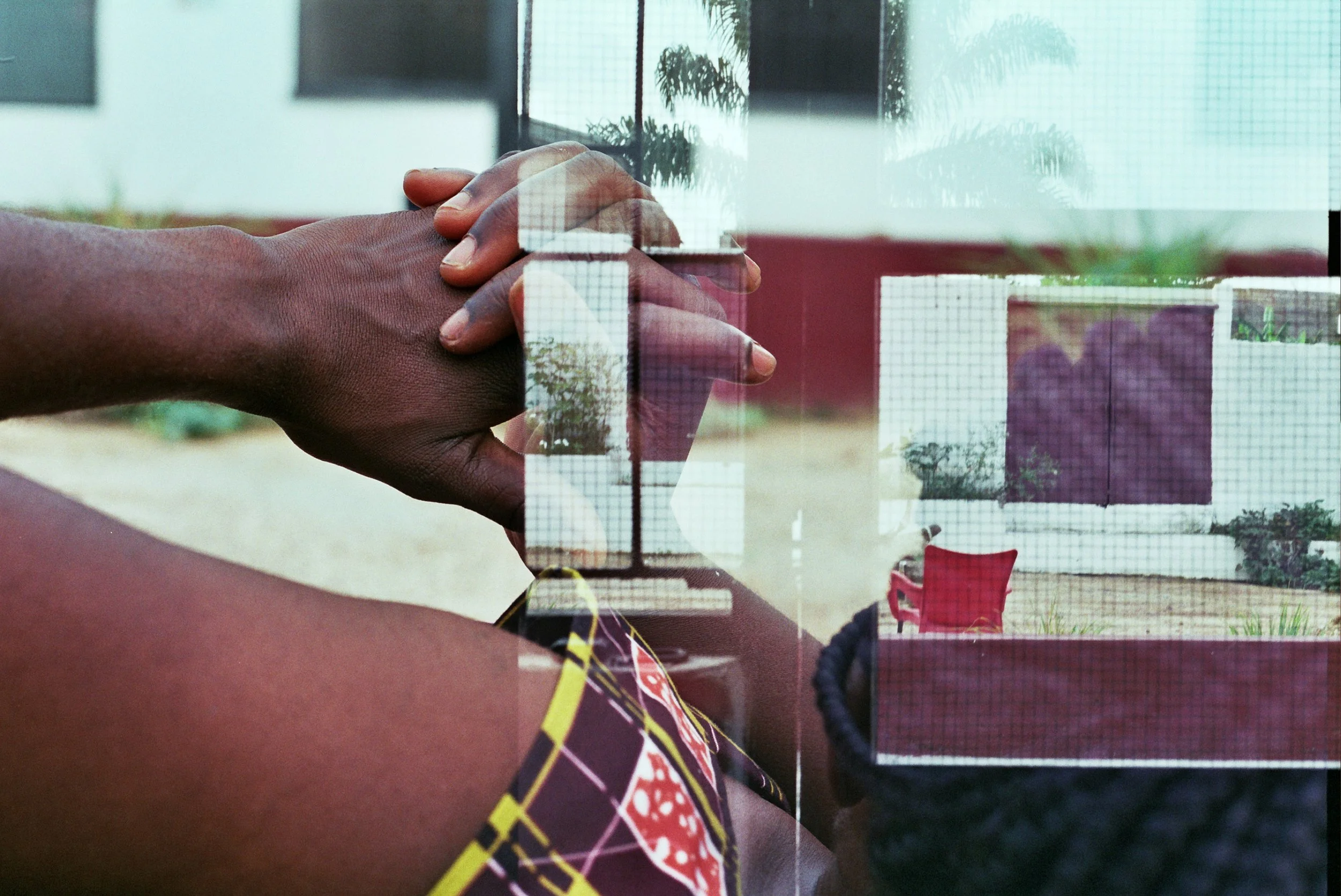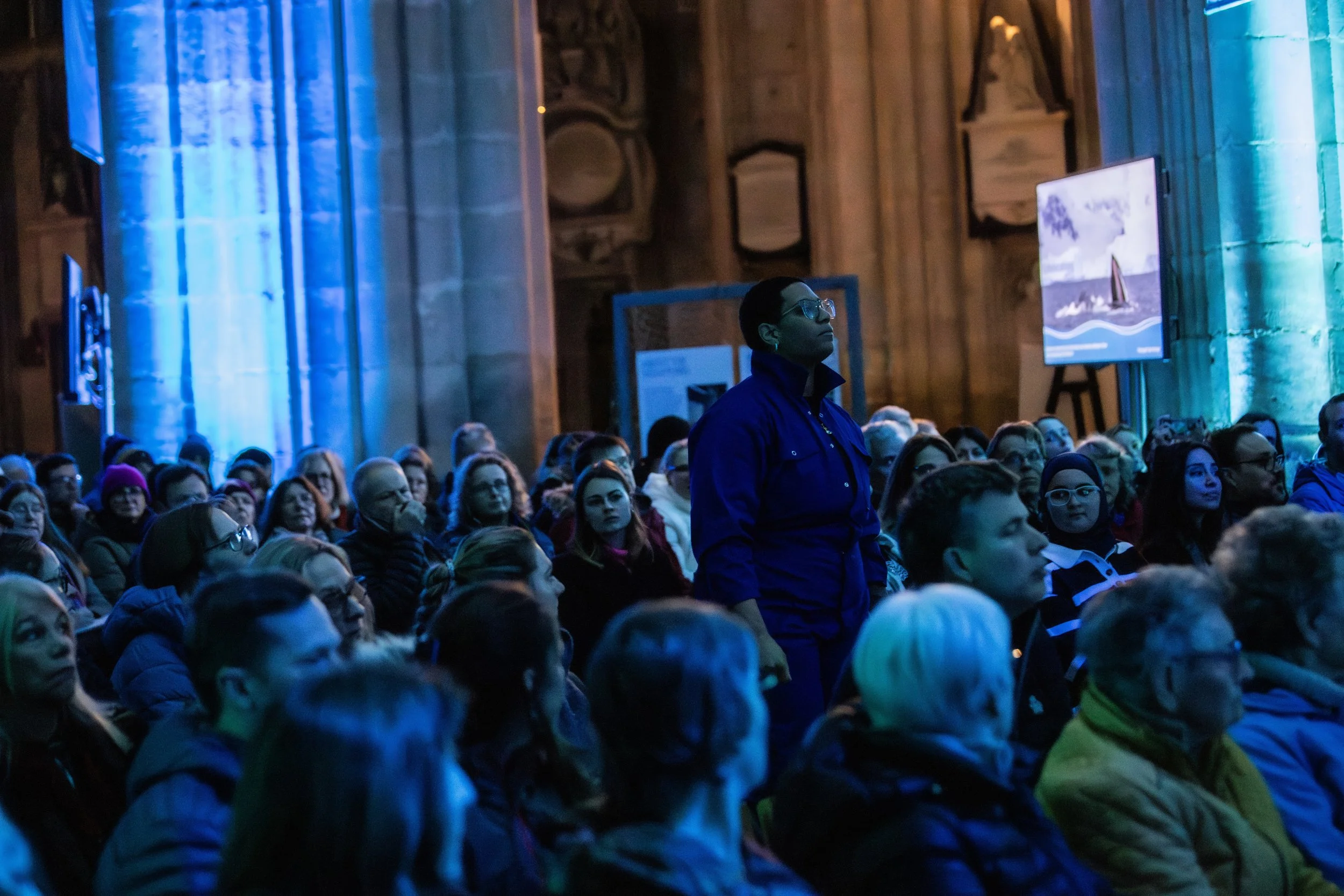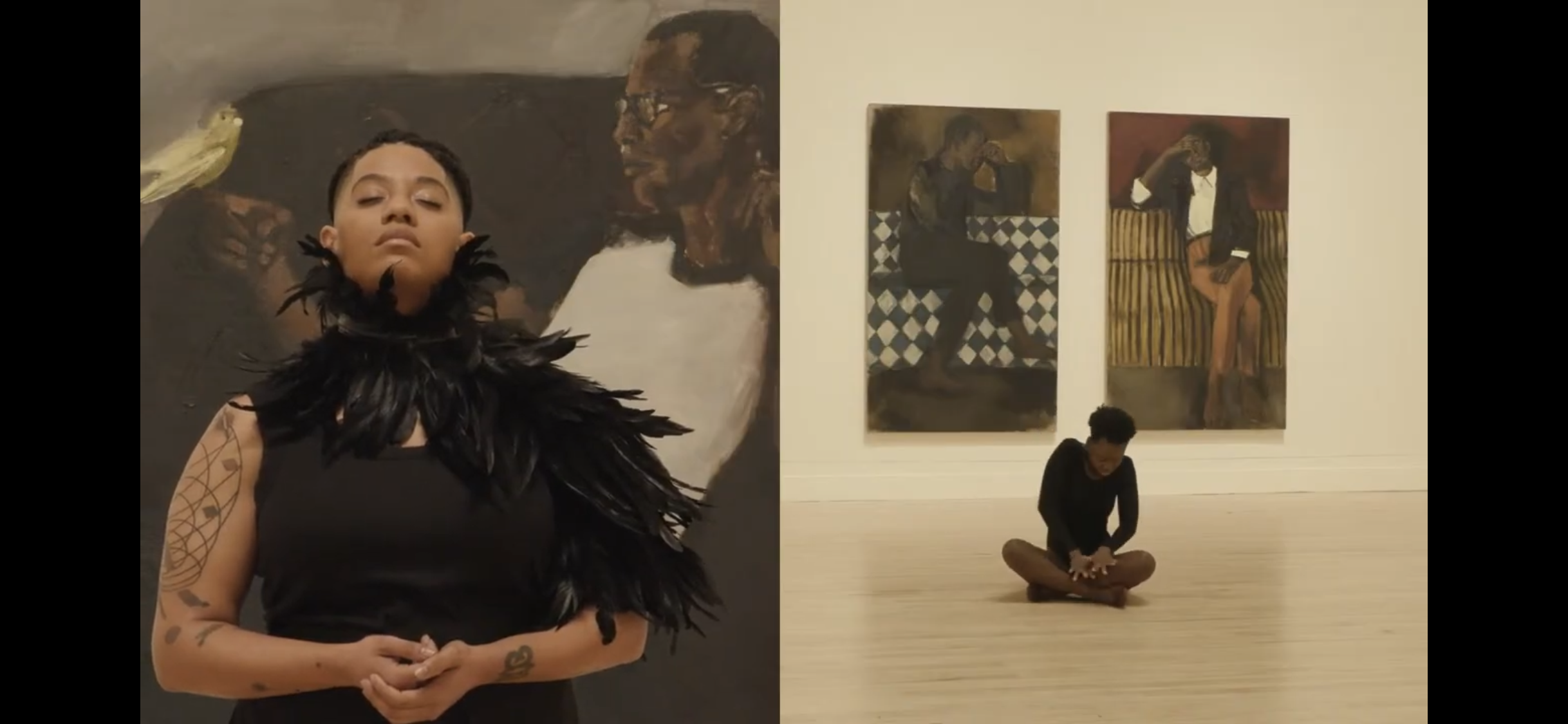Endarkened Co-Composition
Endarkened Co-Composition
During my doctoral studies, I developed Endarkened Co-composition as a collaborative and participatory music-making and research methodology that aims to interrogate structures of hierarchy and histories of hegemonic practice.
Endarkened co-composition methodology presents a significant challenge to established musical norms rooted in Western traditions. This innovative approach intentionally diverges from Eurocentric standards governing how we listen, create sound, conduct research, and engage with music. Rather than accepting these standards as universal, endarkened co-composition reaffirms the importance of Black and Indigenous storytelling and knowledge systems, recognizing them as crucial and valid forms of qualitative inquiry often overlooked in Western artistic and academic circles. By prioritizing these inherent methods of understanding, the methodology directly questions the long-held authority of Eurocentric viewpoints in music creation and analysis.
A central aspect of this challenge involves a fundamental shift in authorship and agency. Endarkened co-composition moves away from the traditional notion of the composer as the sole creator, embracing collaborative and participatory methods that position individuals, who might typically be considered research subjects, as equal collaborators and experts. This disrupts the typical power imbalance found between composer and performer or participant in Western art music. Within this framework, the roles of composer and co-composer are deliberately structured to be distinct yet non-hierarchical, fostering a more egalitarian creative environment.
Furthermore, the methodology is built upon critical and anticolonial listening practices. This involves a conscious rejection of "hungry listening," a mode of engagement characterized by a colonial desire to seize and assimilate the sonic worlds of Indigenous communities (Robinson). Instead, endarkened co-composition emphasizes respect, empathy, and genuine co-creation, with the composer approaching any sound environment as a guest. This stance directly confronts the historical exploitation and misrepresentation of sound that has occurred through colonial perspectives in ethnomusicology and related artistic fields.
Endarkened co-composition also explores alternative avenues for musical expression, such as "endarkened notation," including the use of graphic scores as a form of "rebellious notation". By moving beyond the often-prescriptive nature of traditional sheet music, this approach encourages shared authorship and allows for diverse interpretations that are not confined by a single, universally understood musical language. This questions the conventional authority of Western musical notation in dictating how music is performed and understood.
The methodology places great value on the collaborative process and the personal experiences of those involved. Authenticity is evaluated as the process unfolds within what is termed the site of endarkened co-presence, giving precedence to the narratives and contributions of participants without imposing a preconceived sonic style. This emphasis moves the focus away from purely aesthetic considerations dictated by dominant norms toward a more ethically grounded and socially aware approach to creating music.
Finally, endarkened co-composition critically examines the influence of historically exclusive spaces, often associated with dominant perspectives, on how the work is received and interpreted. By acknowledging and addressing these power dynamics, the methodology challenges the established frameworks that these institutions often embody and seeks to make space for previously marginalized stories and experiences.
In essence, endarkened co-composition offers a profound and intentional challenge to the power structures and artistic conventions that have historically shaped Western musical practice and discourse. It provides a pathway that actively seeks to dismantle these established hierarchies by recentering voices from the margins, valuing diverse ways of knowing, and prioritizing ethical and collaborative engagement with sound and storytelling.
Key References:
Nyong'o, T. (2019). Afro-fabulation. New York University Press.
Tolliver, S. R. (2022). Recovering Black storytelling in qualitative research (1st ed.). Routledge, Taylor & Francis Group.
Robinson, D. (2020). Hungry listening. University of Minnesota Press.









